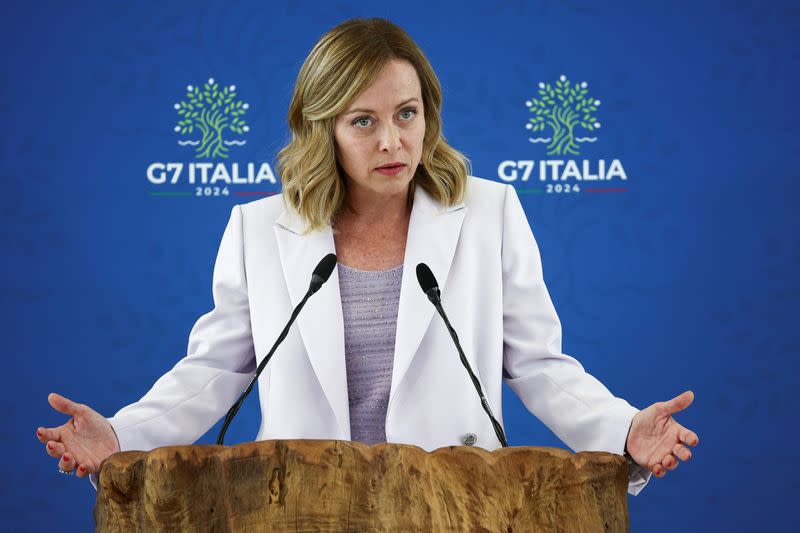Italy's Meloni hails G7, brushes off abortion controversy

By Angelo Amante
BORGO EGNAZIA (Reuters) - Italian Prime Minister Giorgia Meloni on Saturday hailed the achievements of the Group of Seven summit she chaired and dismissed talk of a row about abortion rights as confected.
Meloni was speaking at the end of the June 13-15 G7 summit in southern Italy, which was focused on an agreement to provide an additional $50 billion loan for Ukraine and a stern warning for China on the need for fair competition in business.
Meloni, who heads a right-wing coalition, denied that she had weakened a G7 commitment to abortion rights or support for the LGBTQ community as enshrined in the final communique released at last year's G7 meeting in Japan.
She said there had been no backsliding on either issue, and that language previously adopted by the G7 did not have to be reproduced verbatim.
"I sincerely believe that the controversy was totally contrived," she told a news conference when asked about the abortion issue and reported differences with other G7 nations.
"And in fact it is a controversy that did not feature at the summit, that did not play a part in our discussions precisely because there was nothing to argue about," she added.
The Italian prime minister also took pride in the fact that Pope Francis made history by being the first pontiff to attend a G7 when he spoke of the risks and rewards of artificial intelligence on Friday.
Meloni was an exception among the G7 leaders in that she is riding high after success at the European elections last weekend whereas her male counterparts are all facing internal domestic political pressures.
"I think we can say, without fear of contradiction, that it was a success," she said of the summit, which was held at a luxury hotel in the southern region of Puglia.
She received warm words of praise from British Prime Minister Rishi Sunak. "Giorgia is fantastic and she deserves enormous praise for having an incredibly successful G7 summit," he told reporters on Friday.
(Additional reporting by Crispian Balmer in Bari; Writing by Keith Weir; Editing by Ros Russell)

 Yahoo News
Yahoo News 
